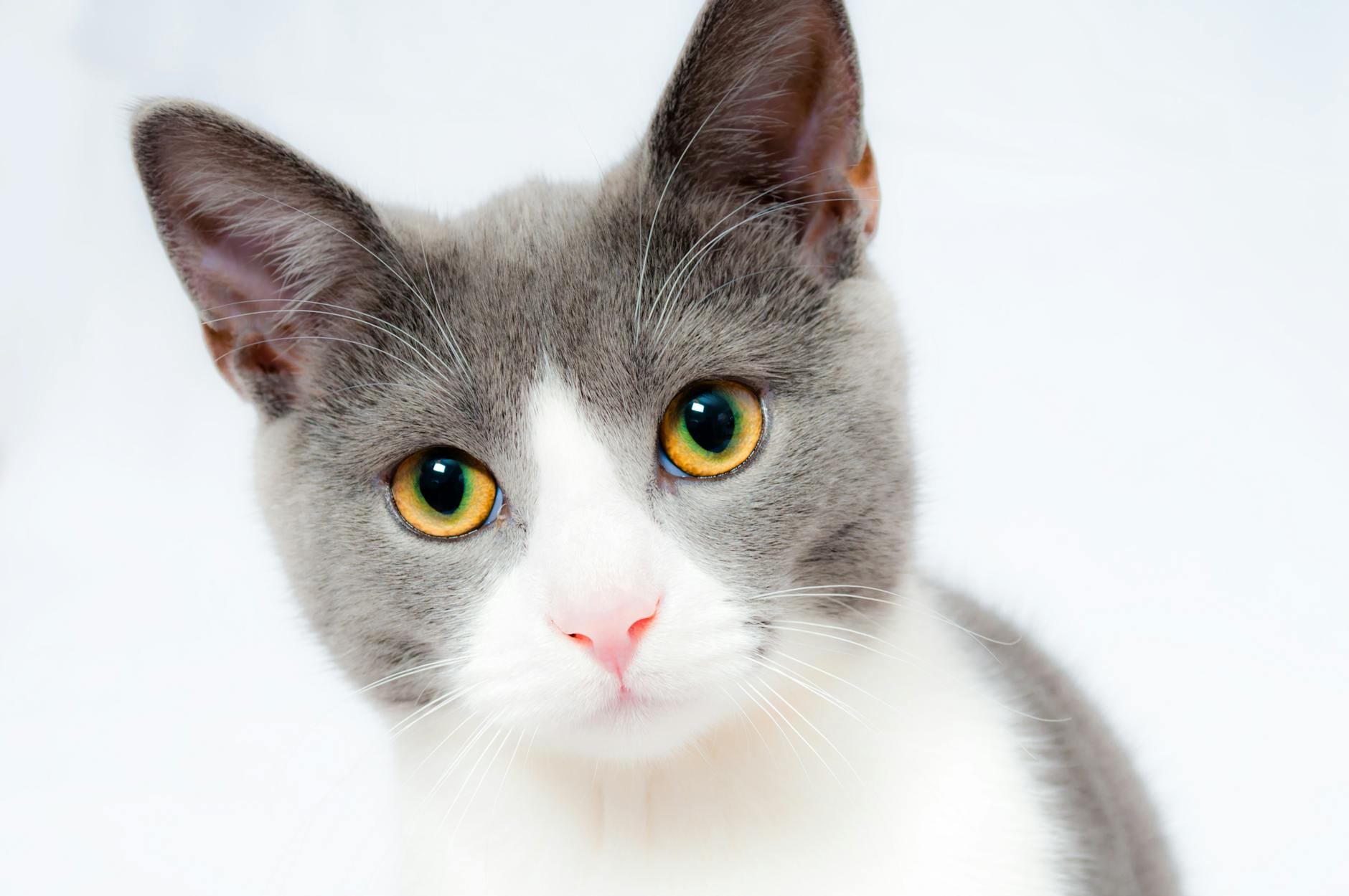Atopica for cats offers a promising solution for managing allergies and various skin conditions that affect our feline friends. This innovative medication works by targeting the immune response, effectively alleviating symptoms and improving overall quality of life. Given the prevalence of allergies in cats, understanding how Atopica functions and its potential benefits is crucial for pet owners seeking relief for their beloved companions. With the right information, you can explore how this treatment can help your cat feel more comfortable and healthy.
Understanding Atopica and Its Uses in Feline Medicine
Atopica for cats, the brand name for cyclosporine, is a popular immunosuppressive medication specifically designed for treating allergic reactions and dermatitis in cats. It enhances the immune system’s response to specific allergens, providing relief from symptoms associated with allergic skin conditions.
Key uses of Atopica for cats include:
- Allergic Dermatitis: It effectively treats inflammation caused by allergies.
- Food Allergies: Atopica can provide relief for cats suffering from adverse reactions to certain foods.
- Flea Allergy Dermatitis: It helps reduce itching and inflammation linked to flea allergies.
Benefits of Atopica for cats comprise:
- Long-lasting Relief: Many cats experience significant improvement within a few weeks.
- Improved Quality of Life: Reduces the discomfort associated with persistent itching, leading to a happier, more active pet.
In summary, Atopica for cats serves as a vital tool in managing feline allergies, significantly enhancing feline well-being when properly administered. Always consult with a veterinarian to determine the most appropriate treatment plan for your cat’s specific needs.

How Atopica Works to Alleviate Allergies in Cats
Atopica for cats is an effective treatment that targets underlying allergy symptoms by modulating the immune system. It primarily contains cyclosporine, which helps reduce inflammation and immune responses that cause allergic reactions. Here’s how Atopica works:
Targeted Immune Suppression: Atopica specifically suppresses T-cell activation, which is essential in the allergic response. By doing so, it limits the production of inflammatory substances that trigger allergic symptoms.
Long-lasting Relief: As a result of its action, cats experience a significant reduction in itching, which can enhance their overall quality of life.
Gradual Onset of Action: While Atopica for cats is not an immediate solution, many cats show improvement within 4 to 6 weeks of treatment.
Minimal Side Effects: Most cats tolerate Atopica well with a lower risk of side effects compared to steroids commonly used for allergy treatment.
With Atopica, you can help your feline friend enjoy a more comfortable, itch-free life, making it an excellent option for managing allergies effectively.
Common Allergies Treated with Atopica
Atopica for cats effectively addresses various allergic conditions that can negatively impact your feline friend’s quality of life. These common allergies include:
- Flea Allergies: Many cats suffer from hypersensitivity to flea bites, leading to intense itching and skin irritation. Atopica for cats helps reduce the allergic response.
- Food Allergies: Some cats develop allergies to specific ingredients in their diet. Atopica can mitigate symptoms like vomiting, diarrhea, and skin lesions caused by these reactions.
- Environmental Allergies: Cats often react to pollen, mold, or dust mites. Atopica for cats can alleviate sneezing, itching, and excessive grooming caused by these allergens.
- Contact Allergies: Certain materials or chemicals in the environment can trigger allergic reactions. Atopica can help relieve irritation and discomfort stemming from direct contact.
In comparison to traditional treatments, Atopica offers a more targeted approach, as it specifically combats the immune response to allergens rather than merely masking symptoms. Always consult your veterinarian to tailor the treatment plan that best suits your cat’s needs.
Atopica for Skin Conditions: Efficacy and Benefits
Atopica for cats is not only effective for managing allergies, but it also plays a significant role in treating various skin conditions. This medication primarily functions as an immunosuppressant, which helps reduce inflammation and itching associated with dermatological issues. Here are some key benefits of using Atopica for cats with skin conditions:
- Reduces Inflammation: It offers rapid relief from the discomfort caused by skin irritations.
- Minimizes Itching: Many cats experience chronic itching; Atopica effectively alleviates this symptom, leading to improved quality of life.
- Promotes Healing: By reducing inflammation, Atopica for cats supports skin recovery and health.
Common Skin Conditions Treated:
| Skin Condition | Description | Atopica Efficacy |
|---|---|---|
| Atopic Dermatitis | Allergic skin inflammation | Highly effective |
| Eosinophilic Granuloma | Skin lesions caused by immune response | Effective in reducing lesions |
| Miliary Dermatitis | Small, crusty skin lesions | Effective |
Overall, Atopica for cats presents a well-rounded option for both allergy relief and skin condition management, proving to be a valuable tool in feline dermatological care. Always consult your veterinarian to determine the best treatment plan for your feline friend.

Dosage and Administration Guidelines for Atopica
When it comes to administering Atopica for cats, following the correct dosage and administration guidelines is crucial for effective treatment. Here’s a quick overview to ensure optimal results:
Initial Dosage:
- Most cats start with a dose of 5 mg/kg taken once daily.
Maintenance Dose:
- After a few weeks, your veterinarian may adjust the dosage to a maintenance level of 2.5 mg/kg every other day, depending on your cat’s response.
Administration Tips:
- Oral Form: Atopica comes in flavored capsules, making it easier to administer.
- Food Option: You can give Atopica with food to prevent gastrointestinal upset.
Timing:
- Consistency is key; administer Atopica at the same time each day for best results.
Before starting treatment with Atopica for cats, consult your veterinarian for tailored advice, ensuring safety and effectiveness based on your cat’s specific needs. Always monitor your cat’s response to the medication and report any side effects to your vet promptly.
Potential Side Effects and Risks of Atopica
While Atopica for cats can effectively manage allergies and skin conditions, it’s crucial to be aware of potential side effects and risks. Like any medication, it may not be suitable for every cat. Here are some common side effects you may observe:
- Vomiting: Some cats may experience gastrointestinal issues, leading to occasional vomiting.
- Diarrhea: Loose stools can occur, particularly when starting the medication.
- Loss of appetite: A decrease in food intake is another possible response to Atopica for cats.
- Lethargy: Some cats might feel tired or less active after starting treatment.
Additionally, it’s important to consider specific risks:
- Pregnancy and Lactation: Consult your veterinarian before administering if your cat is pregnant or nursing.
- Pre-existing Conditions: Cats with liver or kidney issues may not tolerate Atopica for cats as well.
Monitoring your cat’s health closely after initiating treatment is essential. Always report any unusual symptoms to your veterinarian promptly to ensure the safe use of Atopica for cats.
Success Stories: Cats Who Have Benefited from Atopica
Many cat owners have reported remarkable improvements in their pets’ health conditions after using Atopica for cats. Here are some inspiring success stories:
Whiskers the Siamese: After suffering from severe allergies that led to constant itching and hair loss, Whiskers was prescribed Atopica. Within two weeks, his itching dramatically decreased, and his coat began to regrow, restoring his youthful appearance.
Mittens the Tabby: Mittens faced chronic skin infections due to allergies. Following treatment with Atopica for cats, her skin condition improved significantly, allowing her to live a more comfortable life without the need for constant treatments.
Shadow the Maine Coon: Shadow struggled with environmental allergies, often sneezing and experiencing watery eyes. After starting Atopica, his symptoms alleviated within days, leading to a happier, more active lifestyle.
These stories highlight the effectiveness and potential of Atopica for cats, providing hope for pet owners grappling with similar issues. Always consult your veterinarian to determine if Atopica is the right option for your beloved feline.

Consulting Your Veterinarian About Atopica Treatment
Before starting your cat on Atopica for cats, it’s crucial to consult with your veterinarian. Here’s why:
Individual Assessment: Every cat is unique; a vet will evaluate your cat’s specific condition, medical history, and possible allergies.
Proper Dosage: Your veterinarian will determine the correct dosage for your cat. Dosage may vary based on the cat’s weight and severity of the condition.
Monitoring Side Effects: While Atopica is generally safe, side effects can occur. A vet can help you monitor for any adverse reactions.
Alternative Treatments: If Atopica isn’t suitable for your cat, your veterinarian can suggest alternative treatments or therapies.
Long-Term Management: Discuss a plan for managing your cat’s allergies or skin conditions long-term. Regular check-ups can help adjust the treatment as needed.
In summary, engaging with your veterinarian before initiating Atopica for cats ensures a tailored approach for your feline friend, maximizing benefits while minimizing risks.
Frequently Asked Questions
What is Atopica and how does it work for cats?
Atopica, also known as cyclosporine, is an immunosuppressive medication commonly prescribed for cats suffering from allergies and certain skin conditions. It works by inhibiting specific immune responses that can lead to allergic reactions and skin inflammation. By doing this, it helps to reduce itching, redness, and irritation, allowing your cat to feel more comfortable and improve their quality of life. Atopica is typically given orally and can take several weeks to see significant improvements.
What are the common side effects of Atopica for cats?
While Atopica can be effective in treating allergies and skin conditions in cats, it may also come with potential side effects. Common side effects include vomiting, diarrhea, loss of appetite, and lethargy. In some cases, it can also affect the liver or kidneys, so regular veterinary check-ups are essential while a cat is on this medication. It’s important to discuss any concerns with your veterinarian and report any adverse reactions you observe.
How long does it take for Atopica to start working in cats?
The onset of action for Atopica in cats can vary, with some experiencing relief from symptoms within a few days, while others may take several weeks to respond fully to the treatment. Most veterinarians recommend maintaining consistency with the medication for at least 4 to 6 weeks before determining its efficacy. It’s crucial to follow your veterinarian’s dosage instructions carefully to achieve the best results and monitor your cat’s condition during the treatment.
Can Atopica be used alongside other medications for cats?
Atopica can sometimes be used in conjunction with other medications, but this should always be done under the supervision of a veterinarian. Certain drugs may interact with Atopica or exacerbate side effects, so it’s important for pet owners to provide their vet with a complete list of any other medications or supplements their cat is taking. Your veterinarian will be able to advise on the safest combination of treatments based on your cat’s specific health needs.



